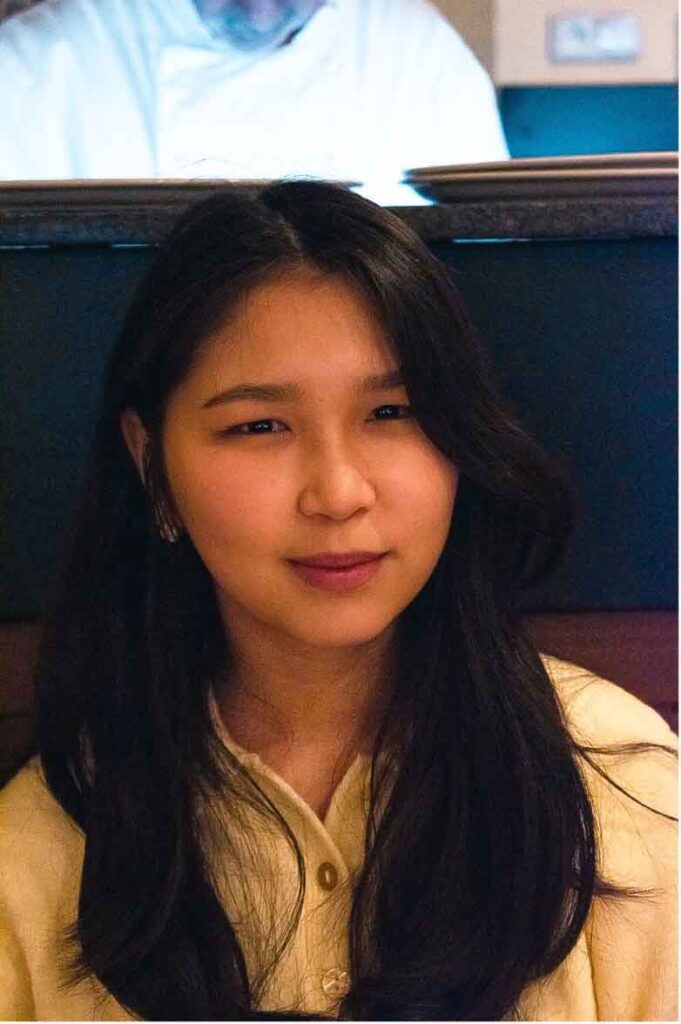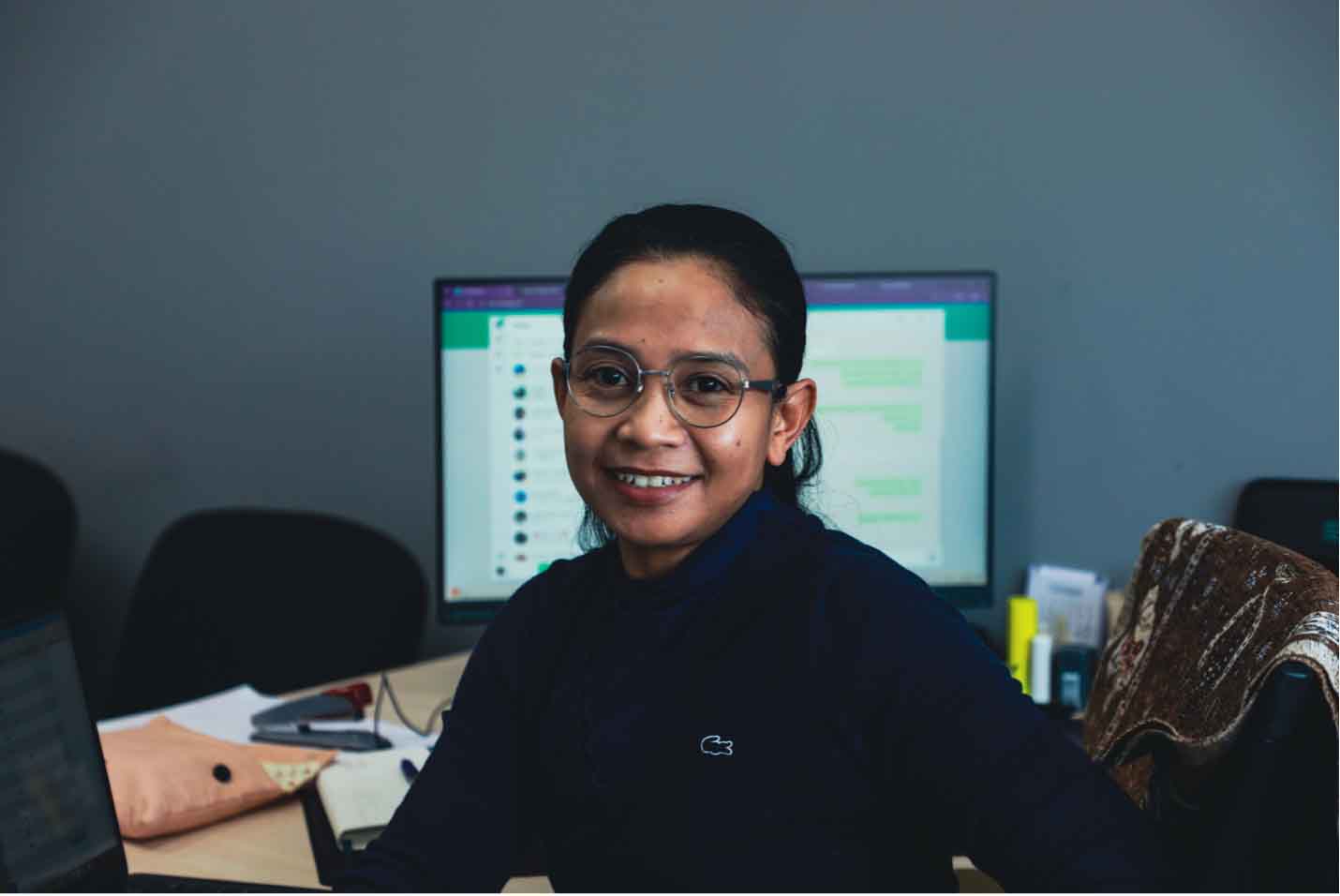The cafeteria is eerily silent. Where there was once the clatter of trays and laughter over lunch, now only a few students sit, deep in study or scrolling through their phones. Down the hall, a student dozes off in a chair, exhaustion creeping in from fasting through the long academic day.
For many at KIMEP University, Ramadan is a time of personal and spiritual reflection. Still it also brings the challenge of maintaining academic performance while abstaining from food and drink.
KIMEP is home to a diverse student body, many of whom observe Ramadan. The holy month is a time of fasting, prayer, and self-reflection, but for students balancing academic pressures, it also brings challenges. Many adjust their schedules, opting to study at night and rest during the day. Social interactions shift, with fewer students gathering at lunchtime and more focusing on spiritual practices or quiet moments of rest. The shift in routine is felt across campus, and it affects not just Muslim students but the broader university atmosphere.
“This is my fourth year fasting during Ramadan, and every year, I look forward to it with a lot of excitement,” said Zerdeli Bapay, third-year journalism student. “Ramadan is not just about not eating or drinking; it’s a time for me to focus on my spiritual growth and become a better person. It’s a chance to clear my mind and focus more on good morals and values instead of material things. It’s a time for self-discipline, reflection, and connecting with my faith.”
One of the most cherished moments of Ramadan is Suhoor, the pre-dawn meal.
“I wake up early for Suhoor around 4:30 a.m., pray Fajr, and then try to get some rest before starting my day,” Bapay said. “Fasting during the day can be tough, especially with university work, but I try to stay hydrated in the non-fasting hours and eat balanced meals for Iftar and Suhoor. I make sure to eat foods that will give me energy, like fruits, vegetables, and whole grains.”
Balancing fasting and university life is not easy, but many students find ways to make it work.

“At university, it can be challenging to keep up with assignments and classes while fasting. But I’ve learned how to manage my time better,” Bapay said. “Even though it’s hard, being with other students who are also fasting makes me feel supported and connected.” Many students say that the sense of community during Ramadan helps them stay motivated, even when exhaustion and hunger set in.
Despite the difficulties, KIMEP does not officially accommodate fasting students by adjusting academic schedules.
“Under national laws, KIMEP University (and higher education in general) does not officially celebrate any religious activity or event. I asked about last year’s events and learned that iftar had been organized as an independent student effort, which of course, students are welcome to do again this year,” said Christopher Bridges, Dean of Student Affairs. This means that any adjustments to schedules or support systems would need to come from student organizations or faculty members rather than the university administration itself.
This lack of institutional support means that students must rely on their own strategies to manage both religious obligations and academic responsibilities. Some faculty members recognize the challenge and extend small courtesies.

“Some teachers are sympathetic, and they may even let students go to iftar if it’s already opening time,” said Venera Abdildabekova, fourth-year journalism student who is not fasting but observes the changes during Ramadan. The willingness of some professors to accommodate students shows an understanding of the significance of the month, but these small gestures are not guaranteed across all courses.
However, not all faculty members see an impact on students during Ramadan.
“I didn’t notice any changes in the class schedule during Ramadan. As for students’ behavior, I’m not entirely sure who is fasting, as most students in my class eat and drink as usual. However, this doesn’t seem to have any noticeable impact on their behavior,” said Azian Muhamad Adzmi, an assistant professor in the Media and Communications Department. For professors who do not actively interact with fasting students, Ramadan can appear as business as usual, despite the internal struggles some students may be facing.
Having studied and taught in Malaysia, Adzmi notices a stark difference between how Ramadan is approached in Kazakhstan versus his home country.
“In Malaysia, schools and universities often adjust schedules to accommodate fasting students. Classes might start earlier or be shortened to ensure that students and teachers can manage their energy levels effectively,” Adzmi said. “Conversely, in Kazakhstan, academic institutions do not typically alter schedules for Ramadan. Students who fast must adapt to regular class hours and academic demands.” The contrast highlights how institutional support for religious observances can vary greatly depending on location and cultural norms.
Outside of KIMEP, students from other universities face similar challenges.

“There are no major changes in the university for Ramadan, nothing is mentioned anywhere. There are fewer people in the dining room, and the dining room is empty,” said Yelzhana Gizatova, a third-year IT student at Kazakh-British Technical University. The fact that Ramadan is not widely recognized in official policies means that students across Kazakhstan often experience the same struggles.
Yet, for many students, Ramadan is more than just a logistical challenge – it is a time of personal and spiritual growth.
“Fasting does sometimes make me feel tired, but I’ve realized it also helps me focus more on what really matters. I try to use my time wisely and stay organized. I feel that Ramadan helps me grow spiritually, and even though balancing everything can be hard, it’s worth it because it brings me closer to my faith and teaches me a lot about self-control and patience,” Bapay said.
Breaking the fast at Iftar is a moment of deep gratitude and connection.
“I try to plan my day so I can study and also make time for prayers and reflection,” Bapay said. “Even though it’s hard, being with other students who are also fasting makes me feel supported and connected.”
For many, the hardest part of Ramadan is not the hunger itself but the fatigue that comes with balancing fasting, late-night prayers, and academic responsibilities. Some students find that the lack of food makes concentration difficult, especially in long lectures or during exams. Others, however, find that fasting sharpens their focus and allows them to be more mindful of their studies.
Eating three dates at iftar is a Sunnah, following the tradition of the Prophet Muhammad . It provides natural sugars that quickly restore energy after a long day of fasting. But beyond the physical benefits, it symbolizes patience, simplicity, and gratitude for the blessings we have.
Another challenge for Muslim students at KIMEP is the lack of a designated prayer space on campus. Without a dedicated place, students must find empty classrooms or quiet corners to pray. To demonstrate, BCB student Alisher Altynbek lays down his prayer mat in an empty hallway, showing how he and other students adapt to the situation. Students don’t have a special place to pray.
As the sun sets and the call to prayer marks the end of the fast, students gather – some in dorms, others in quiet corners of the campus – to break their fast together. The exhaustion of the day fades into gratitude, and the struggles of balancing faith and academia are momentarily replaced by the warmth of shared tradition. Ramadan at KIMEP may not come with official changes, but for those observing, its presence is deeply felt – not in policy, but in perseverance.

